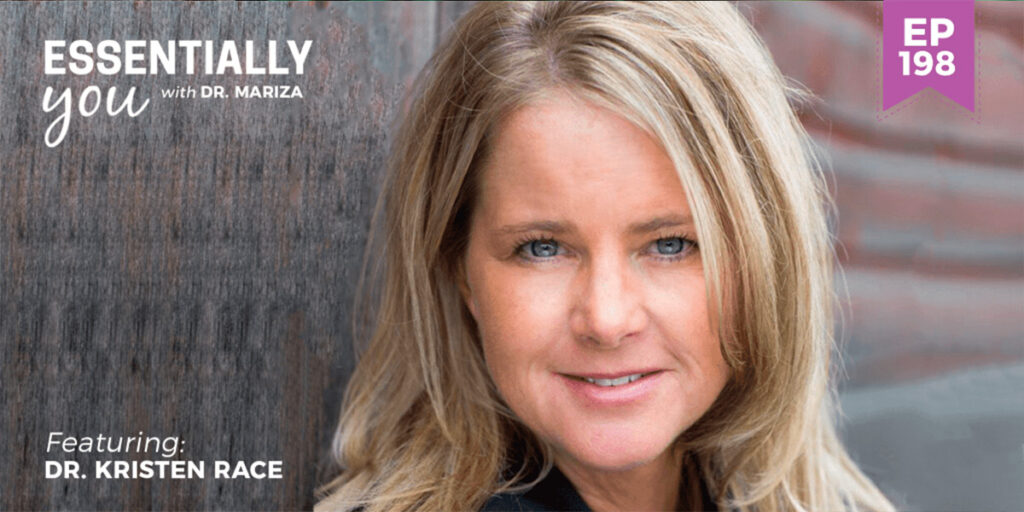
In This Episode: MANAGING YOUR BRAIN CHEMISTRY
- Learn how to become a more mindful parent and role model for your children
- The most common external solutions that people lean on in times of difficulty
- What you can do to build resilience from the inside out and protect your family
- How to create calm and find inner balance by managing your own brain chemistry
- The critical importance of acknowledging the good in the world for your health
Watch the Episode Now
Or Listen to It Here
Or, listen on your favorite app: iTunes (Apple Podcasts) | Stitcher | Spotify | Google Play | Pocketcasts
Episode Summary
Managing stress is an extremely difficult task, especially during a time of confusion and isolation like we are in today. By understanding how your brain changes due to stress, you can start to shift your mindset and alter your stress response system so that you can find balance and take better care of yourself and your family.
Dr. Kristen Race has spent the last twelve years exploring the nexus between mindfulness and neuroscience and has trained over 50 thousand leaders on how to integrate mindfulness into their practices. Dr. Race is an expert on managing brain chemistry during times of stress, the author of Mindful Parenting, and a proprietor of simple things that anyone can do to build stress resilience.
If you are looking for a way to get to the other side of stress, want to implement strategies that can help you balance your brain chemistry, or are looking to incorporate mindfulness into your daily routine but are not quite sure how, Dr. Race is the expert for you.
Are you ready to shift out of the stress ‘danger zone’ and find some rituals and mindfulness practices that can help you understand what is going on in your brain and body? Share what you loved most about Dr. Race’s three core pillar approach with us in the comments below!
Quotes
“There are really three core pillars of my work: one being neuroscience, as in, everything comes back to the way our brains function for me, number two being mindfulness and how mindfulness can impact the ways in which our brains function, and third piece being that small changes can make a really big difference.” (10:13)
“We have mirror neurons in our brains that reflect the emotions that we see around us. So these kids were picking up on parental stress, and that was the biggest factor in triggering them.” (12:21)
“Not to say that this current [COVID-19] situation is a good situation by any means, but I do think that it is giving people time to reflect on the kind of life and the kind of pace that works for them and their family.” (16:30)
“I focus on morning rituals, transition rituals, and evening rituals. And I designed a planner and a huge piece of it is around these rituals because they are the ways that we stimulate our prefrontal cortex throughout the day.” (26:19)
“And now we are sitting together every night and eating. And that is a tremendous opportunity for meaningful conversation, a time to connect when we do feel so isolated, and a great thing to do around the dinner table is to practice gratitude.” (31:26)
Resources Mentioned
Mindful Parenting by Dr. Kristen Race
Follow Dr. Race on Instagram
Essentially You episode 197: What Labs Do I Need to Request for my Hormones?
Essentially You episode 195: How Do You Get More Energy, Like Yesterday?
Essentially You episode 178: Are You Addicted To Stress? How to Banish Stress With 3 Strategies



No comments yet.